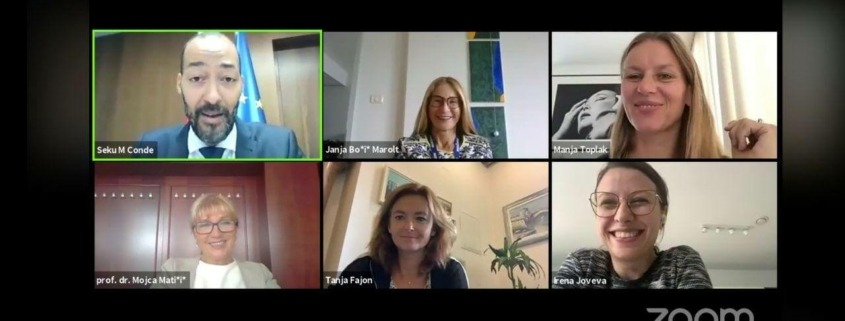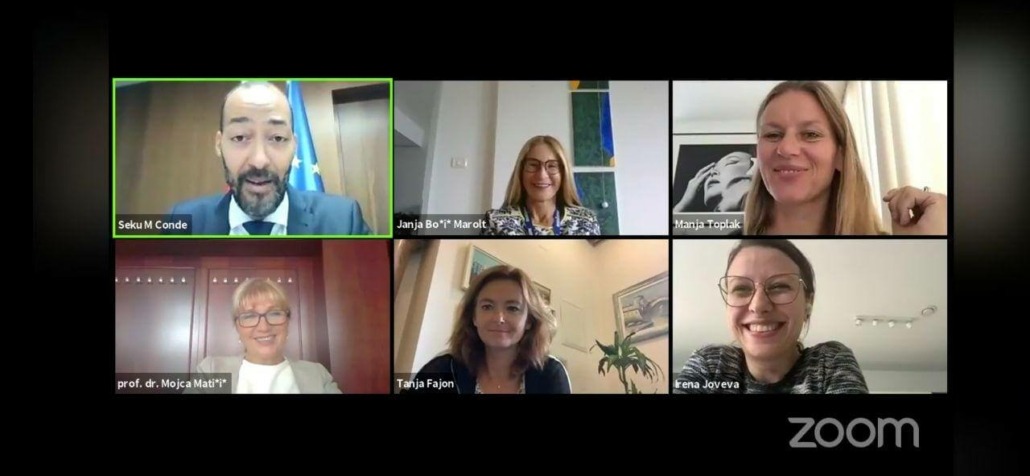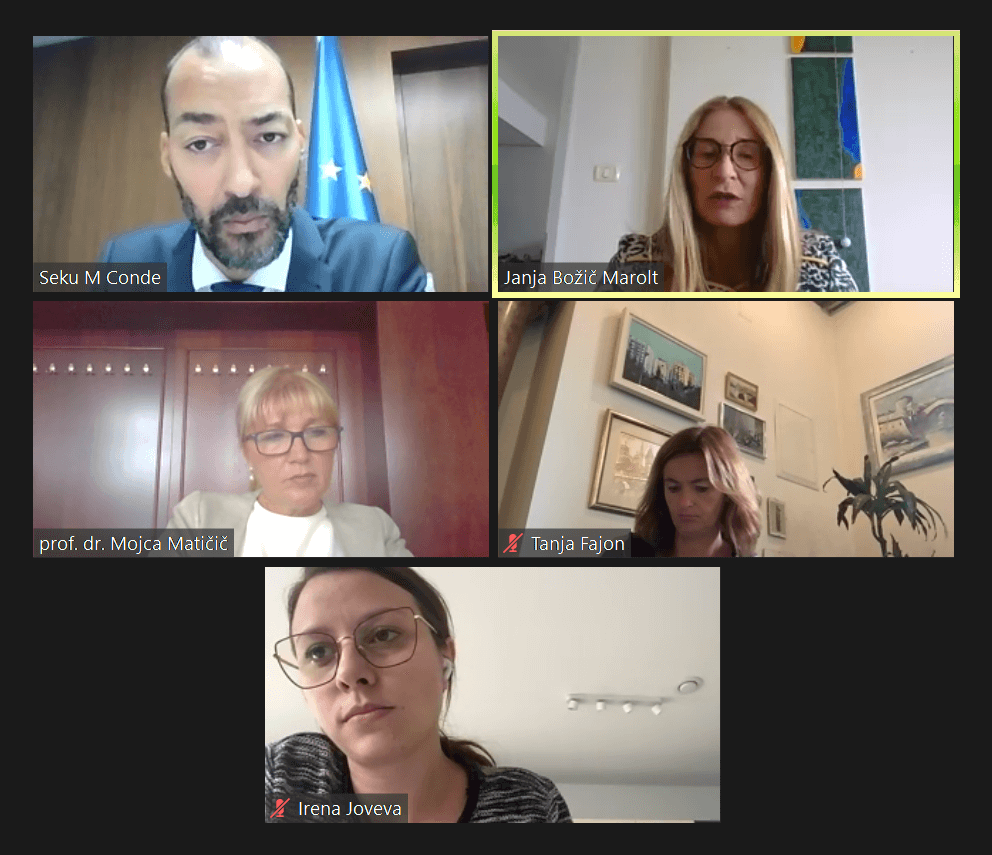MEP Irena Joveva was a guest on an online discussion organized by the Office of the European Parliament in Slovenia, titled “Misinformation during a pandemic in the digital era”. Discussions focused on the misinformation sources, the damage misinformation caused to society, the reach of traditional and modern media, the role of social networks in spreading misinformation, and the legislative framework and options of the EU to regulate the spread of misinformation. Participants of the discussion were MEP Tanja Fajon, prof. Mojca Matičič from the Clinic for Infectious Diseases and Febrile Conditions at the University Medical Center Ljubljana and Janja Božič Marolt, founder and director of the Mediana International Institute for Market and Media Research.
Mojca Matičič pointed out the call centre as an example of good practice for sharing information, which was organized by students of medicine during the first wave of the epidemic: “Access to credible information and empathetic and understandable dialogue with callers was a key factor of the project’s success.” Božič Marolt confirmed that people want credible information. Mediana’s research has shown that the highest level of trust between the Slovenian public has the public RTV broadcasting service. Contrary to the prevailing impression, the vast majority of Slovenes follow health and government recommendations and measures, protecting themselves and wearing masks. Fajon highlighted the importance of media education and media literacy with the emphasis that these two alone are not enough: “People summarize information with emotions and once false information is anchored in our brains, it is impossible to erase it. Not even with denials and lawsuits, the damage is done.”
Irena Joveva said that the European Commission is currently preparing digital services act and an action plan for democracy. They will regulate the field of hate speech, provide greater transparency of algorithms and clarity of content, primarily sponsored ones. She emphasized that we need both; self-regulation and taking the initiative and responsibility of online platforms for published content, as well as their legal regulation. There is a thin line, but we have to define the limitations. “Adoption of legislation is not the only responsibility of politics, but also how they behave and communicate. Communication in Slovenia was inappropriate; the citizens were to often confronted with conflicting information which contributed to conspiracy theories. As a result, people began to believe everyone and everything they have heard, instead of trusting the ones who provided them with credible information, “Joveva summed up.
Regarding hate speech, she pointed out the existence of different interpretations of what hate speech is: “We are arguing about this definition in the European Parliament because there are also MEPs who build their political messages on hate speech.” In the end, it will be a political agreement; however, she does not believe that the virus of infodemic can be cured, but it can be treated by combining legislative measures with the actions of the web platform operators. At the same time, a critical assessment by the people and the media will have to prevail. In this regard, Joveva points out the uncritical summarization of Twitter posts: “World leaders use it to communicate directly with citizens, without the filter of critical judegment, such as the judgement of journalists.” Božič Marolt, who believes that it is inappropriate for the public media news to open with unverified information from Twitter or to provide information from social media in the news program, also confirmed Joveva’s statement.
Mojca Matičič concluded with the similarities between the AIDS epidemic in the 1980s and the COVID-19 pandemic. Matičič said: “We already knew exactly how the virus was transmitted in the early 1980s. There was no cure, no vaccine, but we knew a way to avoid infection. Unfortunately, this has not been talked about for years and years, even though millions of deaths could have been prevented. There has been a huge amount of misinformation and conspiracy theories arguing the disease does not exist. And there is still no vaccine against AIDS, but it is not problematic because we all know how to protect ourselves from getting infected. With the Covid pandemic, we have the opportunity to adapt our behaviour to protect ourselves, to be responsible, honest to ourselves and others, and to consider and spread reliable and verified information.“







Leave a Reply
Want to join the discussion?Feel free to contribute!